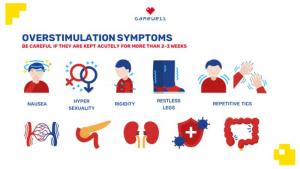5 Habits for Managing Exam Anxiety
In all school years and around the entire planet, many students face a common challenge: anxiety before the exams. Those pounding hearts, sweaty palms, and overwhelming thoughts are familiar sensations to most. Test anxiety can be overwhelming and sometimes paralyzing. Therefore, it is very important to learn strategies to manage and control it.
Learning to effectively manage anxiety is an invaluable skill that not only improves academic performance, but also contributes to emotional well-being. In this article, We will explore anxiety in the context of exams and present a series of practical habits and strategies that students can incorporate to reduce stress. and increase your confidence in the face of exams and academic tests.
Exam anxiety
Test anxiety is a natural response of the body to stressful situations. When we face an academic assessment, the body prepares to face a challenge, which causes the release of hormones such as cortisol and adrenaline. These chemicals can have physical and emotional effects, such as increased heart rate, excessive sweating, and negative thoughts. It is important to recognize that anxiety is not inherently bad; In fact, in proper doses, it can increase performance. However, when anxiety becomes overwhelming, it can be counterproductive.
Coping with test anxiety affects students of all ages and educational levels. From the early years of school to college and beyond, the pressure to perform well on exams is constant. Students may feel like their future depends on a single outcome, which increases pressure and anxiety. Comparison with other peers and family expectations can also contribute to feelings of stress..
The effects of test anxiety can range from simple trepidation to full-blown panic attacks, making learning and testing a challenging experience. However, it is essential to understand that test anxiety is common and that there are effective strategies to address it.
- Related article: "11 vital study techniques to learn more"
Habits to manage anxiety
Now that we have explored the impact of anxiety in the context of exams, it is time to address how we can effectively manage this anxiety. Fortunately, there are a series of habits and strategies that can help you face exams with confidence and calm. Let's look at some of the most effective:
1. Techniques of breathing and relaxation
One of the quickest ways to reduce anxiety is through conscious breathing. Practicing deep, slow breathing can slow your heart rate and relax your muscles. A simple technique is "4-7-8 breathing": Inhale for 4 seconds, hold your breath for 7 seconds, and exhale for 8 seconds. Repeat this several times to calm your nerves.
- You may be interested: "Controlled Breathing: what it is and how to use it"
2. Planification and organization
Lack of preparation is one of the main causes of test anxiety. Proper planning can help you feel more confident. Create a study schedule that includes rest times and stick to it. Divide the material into manageable sections and set realistic daily goals. The feeling of being prepared will reduce uncertainty and anxiety.
3. Self-care and good habits
Taking care of your body is essential. Maintain a balanced diet and avoid excess caffeine and sugar, which can increase anxiety. Regular exercise is a great way to release tension and improve your mood. Even a short walk can make a difference.
4. Find a positive attitude
The way you talk to yourself influences your anxiety level. Instead of focusing on negative thoughts like "I can't do this" or "I'm going to fail," cultivate a positive attitude. Make positive statements like "I am prepared" or "I can handle this." Self-confidence is key to overcoming anxiety.
5. Practice and mock exams
Practice with previous exams or mocks can help you familiarize yourself with the test format and reduce anxiety. The more you expose yourself to exam-like situations, the more comfortable you will feel on the day of the actual test.
Practical tips to incorporate these habits
Now that we've explored the essential habits for anxiety management before exams, it's important to consider how you can effectively incorporate them into your daily routine. Here are some practical tips to implement these habits:
- Customize your techniques: Not all strategies will work the same for everyone. Experiment with different breathing techniques, study schedules, and physical exercises to find what best suits your needs.
- Set clear goals: Defines realistic and achievable study goals. Set small milestones and celebrate your achievements to stay motivated.
- Create a conducive environment: Organize your study space to minimize distractions. A quiet and tidy place can help you concentrate better.
- Seek support: Don't hesitate to talk to friends, family, or academic advisors about your concerns and goals. Emotional support is valuable.
- Keep a record: Keep a journal or use tracking apps to evaluate your progress in implementing these habits. This will allow you to adjust your focus as needed.
- Be constant: Anxiety management is an ongoing process. Don't expect immediate results. Constant practice is the key to success.
Conclusions
Coping with anxiety before exams is a common challenge for students of all ages. However, with the consistent application of effective habits, such as conscious breathing, planning, body care, and a positive attitude, you can master this anxiety. Managing anxiety not only improves your academic performance, but also equips you with valuable coping skills that will serve you throughout life. With patience and practice, you can transform anxiety into confidence and success in your exams.
To learn key emotional management skills for exams, contact us. In Optimal Level we will help you.



